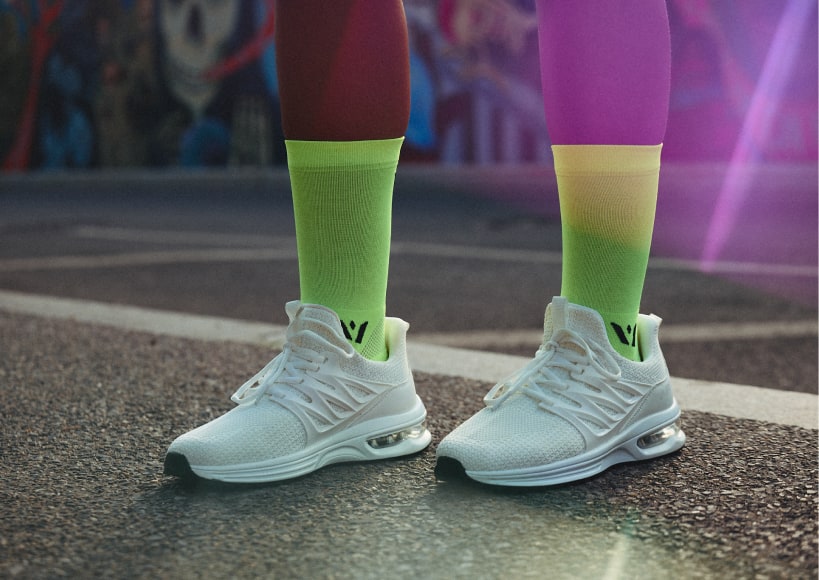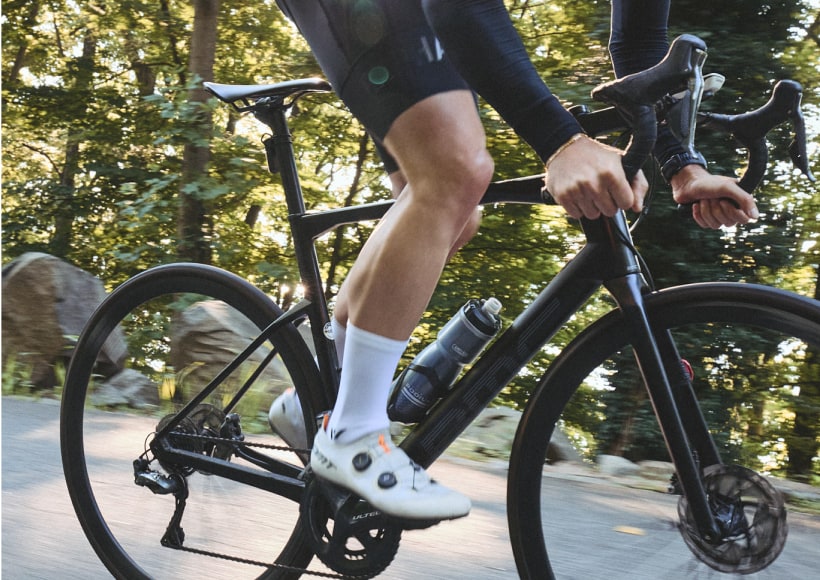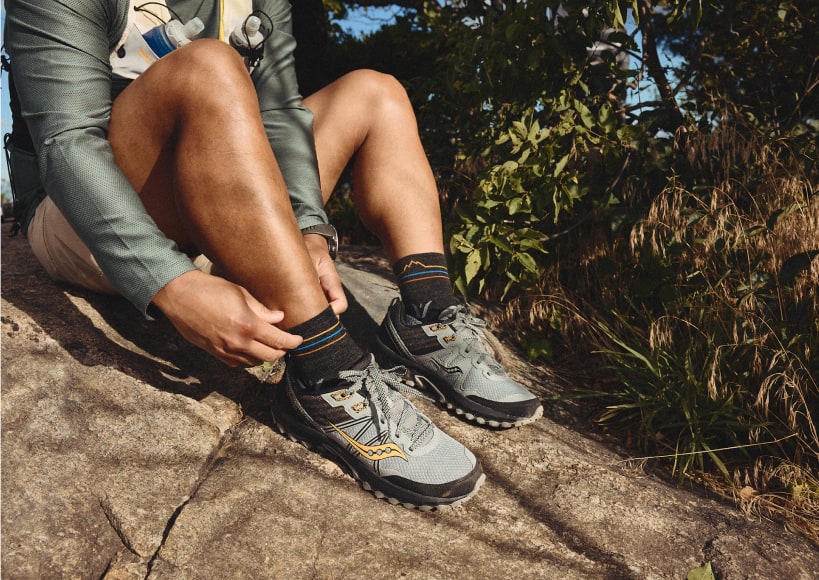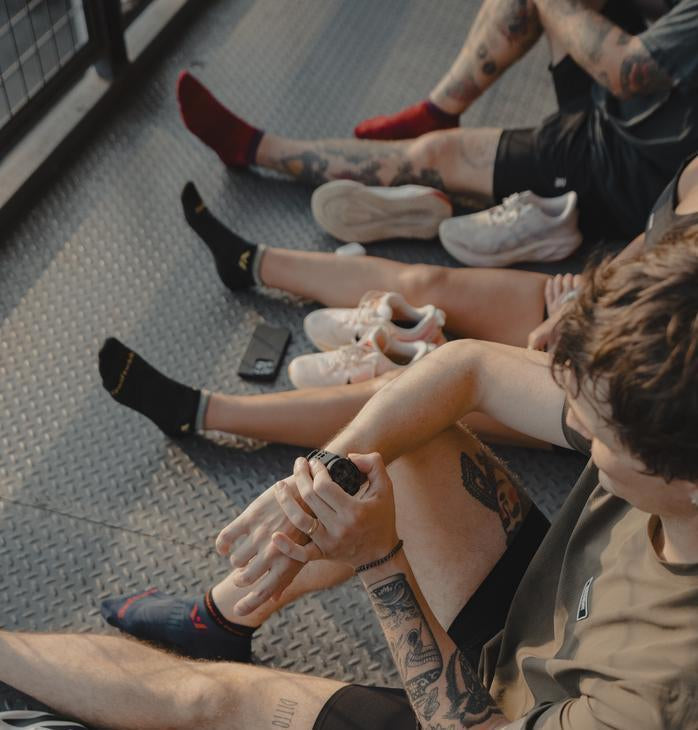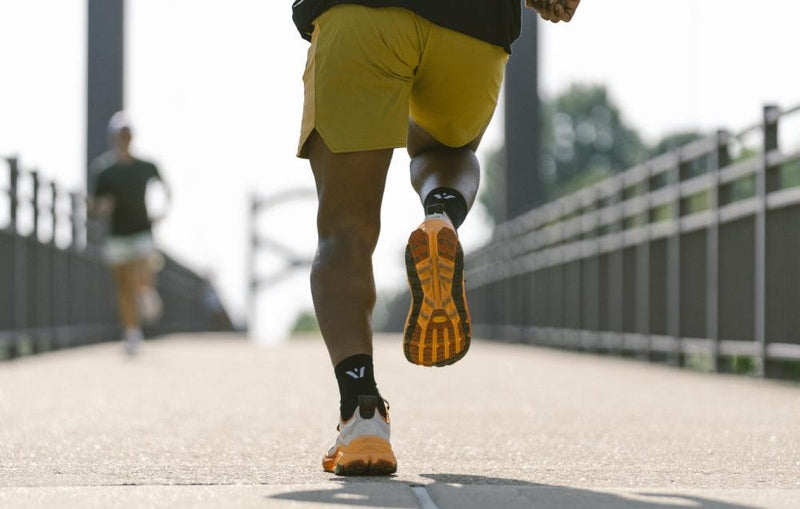September 24, 2024
The Journey to 6 World Marathon Majors: Taking on Berlin
We met Caroline through the local Nashville run community and learned about her dream to compete in all 6 World Marathon Majors.


From collegiate soccer fields to running the streets of Nashville, Caroline’s journey to the Berlin Marathon has been a long and steady one. After hanging up her soccer cleats, she found a new challenge in marathon running—a sport that would push her limits and reignite her competitive drive. Now, with the U.S. majors behind her, Caroline is set to take on the Berlin Marathon, determined to cross the finish line in a new city and on a new continent.
Q: How did you get started running marathons?
Caroline: I got into running marathons after moving to Nashville in 2018. Before that, I played soccer my whole life, even collegiately at Louisville. When I stopped playing, I missed the competitive aspect. So, on a whim, I signed up for the Rock 'n' Roll Marathon in Nashville. I had no clue what I was doing at the time, but I loved the energy of the event and the sense of accomplishment afterward. Since then, I've completed the U.S. majors: Boston, Chicago, and New York. Now, I'm off to Berlin, with hopes of tackling Tokyo and London in the future.
Q: Why do you run marathons?
Caroline: Running marathons gives me a sense of control and accomplishment. It’s not like the typical work goals you set—it’s a personal challenge where the effort, time, and energy you put in are reflected in the result. There’s something about going through the ups and downs of training, then showing up on race day to see what you’re capable of. Every marathon is unpredictable, and that’s what keeps it exciting. Plus, the energy from the crowd is unreal. You’ve got random people cheering for you during the race and congratulating you afterward, even if they have no idea who you are. It’s emotional in the best way—people celebrate your hard work just because they appreciate what you’ve accomplished. That makes it all so much more rewarding.

Cornelia Fort Airpark
Nashville, tennessee
Nashville, tennessee
Q: Balancing owning a gym and marathon training must be tricky. How do you manage that?
Caroline: It’s definitely been a balancing act. I’ve learned that I don’t need to run as many miles as others, especially since I do a lot of strength training. I used to run high mileage and still lift four to five times a week, but that took a toll on my body. Now, I stick to around 50-60 miles per week, supplementing with strength training. That balance has helped me improve my race times and stay injury-free.
Q: Have you faced any major setbacks in your training?
Caroline: The biggest setback was when I got a stress fracture just a few months before I was supposed to run the Flying Monkey Marathon in Nashville for the fourth time. It was tough to sit that one out. But it shifted my focus to controlling what I could—strength training and upper body cardio, like swimming. That injury ultimately made me a stronger and smarter runner.
Q: Why did you choose the Berlin Marathon?
Caroline: After completing the U.S. majors, I knew I wanted to run an international marathon. I qualified for Berlin with my Boston time last year, so it was the next logical step. I’m excited because Berlin is known to be the flattest of the World Marathon Majors, which should make for an interesting race!



Q: What keeps you motivated on tough training days?
Caroline: Honestly, it’s the community. I get a lot of support from my gym and the people I train with. I also look at Strava for motivation—seeing others get their runs in pushes me to get mine done too. Knowing that people are invested in my progress and asking about my training keeps me accountable. Plus, I know I’ll be happier staying committed, even when it’s tough.
Q: What’s your mindset going into race day?
Caroline: Race day is all about excitement and seeing what my body can do after months of training. There’s something special about standing on the start line after tapering and feeling good. It’s the culmination of hard work, and I just trust the process. My mantra is “do hard things,” and I remind myself that I’ve put in the work and now it’s time to go out and give it everything I’ve got.
Q: What advice would you give to someone training for their first marathon?
Caroline: Take it slow. Don’t pick a random plan from the internet and start running 40 miles a week if you’ve never run more than five. Gradual increments are key to building a base without injuring yourself. And when it comes to pacing, don’t try to hit the same pace for every run. Embrace the slow runs because they help build endurance for when it’s time to go fast.

Q: How do you celebrate after a marathon?
Caroline: I hope I don't collapse. If my family is there, I celebrate with them. If not, I’ll just grab my medal and enjoy the post-race high. I remember after running my first sub-3 marathon in Houston, I went out for Mexican food and flew home that night. It’s all about taking in the moment, whether with family or fellow runners.
Q: How important is it to have the right gear while training?
Caroline: It’s crucial. What you wear during training is what you should trust on race day. You can’t switch to new shoes or gear at the last minute—it’s a recipe for blisters or injury. Consistency in your gear is key. You’ve got to find what works for you during the long weeks of training and stick with it. For me, having the right shoes and socks—like my Swiftwicks—makes all the difference. I practice with what I plan to wear on race day so there are no surprises.
Follow us on Instagram @swiftwicksocks as we share Caroline’s updates from Berlin.
Caroline's Berlin Marathon Socks
